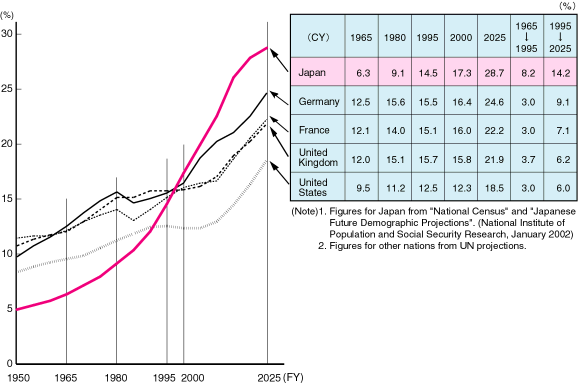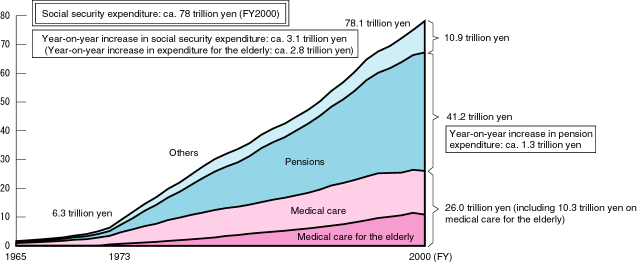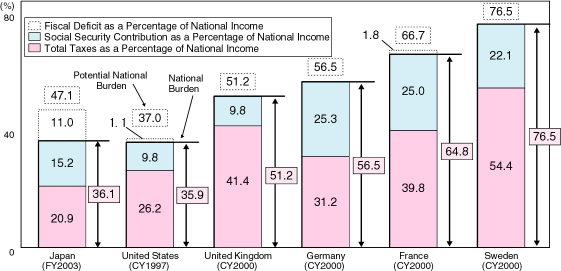Back to Paris, And The Western World Gets the Bill
I'll be leaving London, back to Paris, in a few hours. So blogging will be light until later this evening...when I hope to send out the weekly e-mail for all Strategic Investment readers. Meanwhile, I've included a few charts, courtesy of the always helpful Japanese Ministry of Finance. A hat tip to my friend Greg Weldon at Macro Strategies for bringing them to my attention. Last night I had a few pints of lager at the George, with Adrian Ash from the Daily Reckoning U.K. and his colleagues Nick Laight and Toby Bray. If you think there's a fixation (financial) with home prices in the U.S. it's even more pronounced here, I'm told. In fact, they tell me that most of the shows before 9pm are all about home and property improvement (for some odd reason, probably related to the BBC, programming on public television before 9pm must be "family friendly.") We also talked about whether, in fact, the Western world is paying the bill for its experiment with extravagant social welfare promises. Perfect topic for a few pints. And then today, I run into these charts from Weldon about...Japan. Ade mentioned last night that the Japanese intervened in the currency markets yesterday to arrest the falling dollar and keep the yen/dollar ratio at or around 106. I did a little digging this morning and found a triennial study from the Bank of International Settlements. That study showed that, as of April 2001, international forex trading reached a daily volume (in $US) of over $1.2 trillion. I imagine, given the monetary looseness of Japan and the Fed (and Fannie and Freddie) that nubmer is even larger now. More money chasing more paper assets. The dollar/yen trade accounted for $230 billion on a daily basis. And so, I ask you dear reader, assuming that number, too, is higher, what difference does $5 billion a day make? We'll see. But central banks have never had much success defending currencies that deserve to be weaker/stronger. Despite intervention, the forex market is huge. And by telegraphing its intentions...the Bank of Japan is making itself into a target the same way the Bank of England did in 1992. In other words, you can't stop a currency from reflecting the underlying strength or weakness of the economy it comes from. Besides, check out the links below to see the size of forex trading on a daily basis, and in particular between certain currency pairs. You'll see that euro/dollar daily volumes were in excess of $350 billion in 2001. If they've grown then, and if Japan can't keep the dollar from getting weaker against the yen when dollar/yen trading is a smaller percentage of total forex volume, who can say if the ECB will have any success talking down the euro, even if it wanted to? Total Forex Volumes forexturnover.bmp Volumes by Currency volumesbycurrency.bmp If you want more background on the dollar/yen exchange rate, make sure to check out this post from December 30th. Even though Japan is in the East, its demographic and fiscal trends are very Western. Maybe this has something to do with the post-war influence of the American occupation. I don't know...it would be an interesting topic to look into. But in any even, the Japanese have precisely the problem that most of Europe has, and that America has too: the government has made promises it cannot keep...and it plans to keep them by issuing debt...and hoping that debt doesn't cause a systemic financial calamity. It's a losing proposition. The only question is how long it will take to bankrupt the State. And in the meantime, huge government borrowing sucks out private investment that might otherwise go toward productive capital investment. It's perversely circular of course. The government borrows the public's savings in order to pay the same public's social security and retirement benefits (among others). In the interim, the cost of the promised benefits get larger and the actual money received by tax payers cheapens in value. Lend dear, cash cheap. Not a good bargain for savers. And of course, the trust cost of such high government borrowing is that capital is grossly, horribly, economy-alteringly MIS-allocated and eventually WASTED. As you can see, this confluence of rising debt and an older population is leading to a giant fiscal boondoggle. The Western Welfare State is on borrowed time. The older they get...
 Percentage of the population 65 or older
The more they cost...
Percentage of the population 65 or older
The more they cost...
 Increase in benefits to aging population
And the higher taxes and deficits will go
Increase in benefits to aging population
And the higher taxes and deficits will go
 Growth in taxes and deficits
Growth in taxes and deficits

0 Comments:
Post a Comment
<< Home